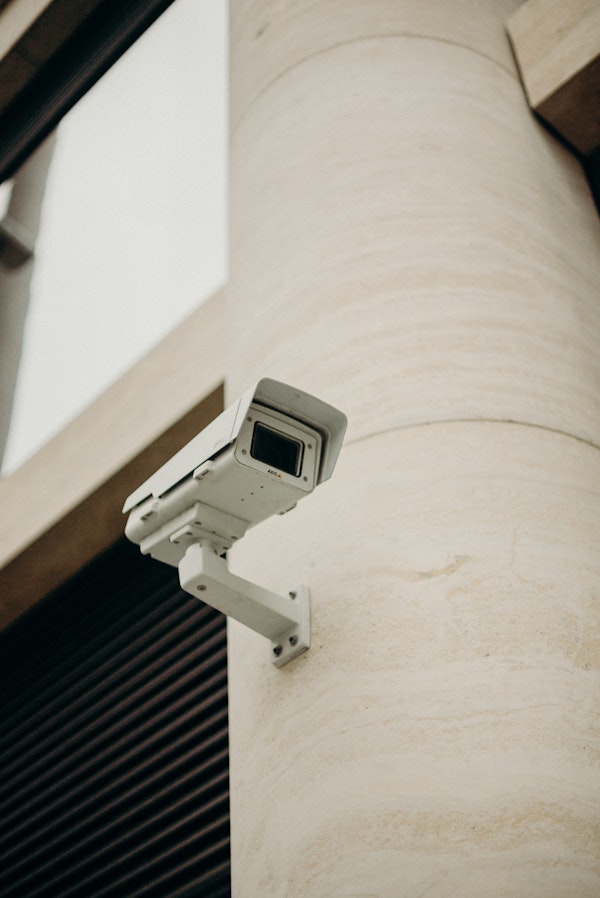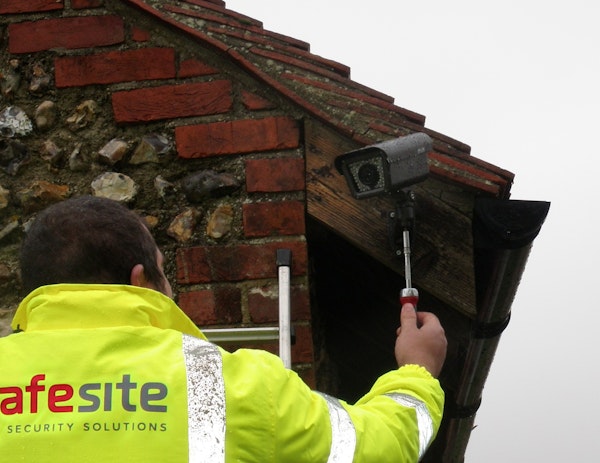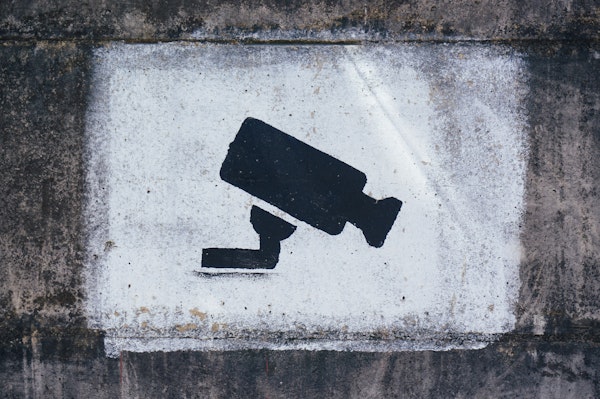- Fully qualified & insured teams
- Free site assessments
- Rapid response
- Rated Excellent
How Is The Surveillance Camera Industry Regulated?
CCTV is an effective security measure – acting as both a deterrent and a way of securing vital video evidence in the event of an intrusion. If designed and installed correctly, CCTV can also help to protect your property, workforce and the public from harm. There are, however, strict privacy laws that govern the use of video surveillance systems. In this article we take a look at some of the standards for surveillance systems and how its use is governed.
In England and Wales, it is the role of the Surveillance Camera Commissioner to encourage compliance with the surveillance camera code of practice. In 2012, the office of the commissioner was created under the Protection of Freedoms Act 2012 to further regulate the use of CCTV.
It is the Commissioner’s statutory role to provide the surveillance camera industry with a list of recommended standards, aimed at installers, maintainers, manufacturers, and surveillance camera operators.
These standards, which are available to purchase from the British Standards Institution, also cover the use of surveillance cameras by private CCTV monitoring companies, the use of body worn video cameras and provide guidance for in-house surveillance monitoring centres.
British Standards for surveillance systems
The main standards are:
BS EN 62676-1-1
This British Standard covers the minimum performance requirements for CCTV, which is particularly important if the images captured are to be used as evidence, in the event of a security breach. It also applies in instances where CCTV is teamed with another security system, such as a burglar alarm.
BS EN 62676-4
This British Standard provides a framework to help determine the best equipment for the security application required, and to evaluate the performance of the video surveillance system.
BS8418
This British Standard code of practice covers detector activated CCTV systems, ensuring an appropriate response if an incident is verified by the CCTV monitoring centre.
Additional standards for surveillance system maintainers and installers
Depending on the type of surveillance system installation there are additional relevant standards that may also be required, including BS EN 62676-2-1 (setting out how devices should work together), BS EN 62676-2-2 (which specifies connectivity methods for IP video surveillance systems), BS EN 62676-3 (covering how digital and analogue devices exchange information), and BS7858 (relating to security screening).
British Standards for Public Space CCTV Operators
There is a list of British Standards for public space CCTV control rooms and operators. These standards can also provide best practice for private CCTV control rooms or if you use CCTV surveillance cameras to monitor private premises that have public access.
The main standard, alongside BS8418 (outlined above) is BS7958. This British Standard applies to CCTV schemes used in public places and includes recommendations on how to secure reliable information that can be used as evidence.
British Standards for contractors
As well as the British Standards mentioned above, there are some additional standards that apply to contractors. The main ones are:
BS7499
This British Standard covers the provision of security services such as security guarding, security patrols, and the training of security personnel.
BS7858
This British Standard was updated in September 2019 and is now considered to be the industry standard for all screening in security-related employment. It is intended to provide reassurance on the conduct of security staff and ensure the safety of the people, goods and services that staff are hired to protect.

British Standards for CCTV Manufacturers
The following additional standards may also apply if you are a manufacturer of video surveillance systems:
PAS 1085
This PAS is a British Standard which applies when manufacturing information is processed and used in a digital format. The requirements of this standard aim to protect the safety and security of video surveillance systems during the manufacturing process.
Secure by design, secure by default: self-certification scheme
In June 2019 the Surveillance Camera Commissioner launched the first secure by default, secure by design minimum requirements for manufacturers of surveillance camera systems and components. The aim of the self-certification scheme is to help combat cyber security threats and ensure security devices are manufactured, shipped and installed securely, in order to be resilient against cyber-crime.
Standards for private CCTV monitoring companies
Many of the same British Standards apply for private companies monitoring public space CCTV. In addition to these BS8591 may also be applicable. This standard covers the operations of manned and unmanned monitoring centres. It also relates to the operation of receiving signals from CCTV and other alarm systems (excluding intruder alarms).
UK privacy and data protection laws (GDPR)
The British Security Industry Association estimates that there are up to six million CCTV cameras in operation across the UK.
The use of CCTV in the UK is covered by the UK Data Protection Act 2018 and the, more recent, EU-wide General Data Protection Regulations (GDPR). Most businesses are aware that personal data must be processed lawfully and transparently – although many are still unaware that this includes the use of CCTV.
The Information Commissioner’s Office (ICO) recommends that organisations using CCTV systems conduct a data privacy impact assessment to ensure CCTV operations are justified and legitimate.
Under the GDPR, personal data can only be processed for as long as it is necessary, so it’s vital that businesses review their CCTV usage and determine how long footage should be kept for. This may vary depending on the purpose of the CCTV system but retaining data for an indefinite amount of time, or until your security system overwrites it, is not considered to be good practice.
For example, if you are using a video surveillance system to protect your vacant property, it is reasonable to assume you may store video footage for six months, as any crime committed at your property are likely to have been detected and investigated within this timeframe.
People captured on CCTV are entitled to request access to the footage. Organisations must not disclose personal data about other subjects as part of any data-sharing process so this may require parts of the footage to be blurred before it is handed over.
Protecting CCTV data while it is being accessed and when it is stored is essential to ensuring confidentiality. Footage should only be viewed by authorised personnel and either encrypted when stored or accessed electronically, or securely locked away if it is being physically stored.
With the introduction of the GDPR, there is more of an equal balance between the rights and interests of the operator and data subjects. Displaying clear signage explaining that CCTV is in use in that area and where further information can be found is an important step to ensuring compliance with the GDPR.
Breaching GDPR can result in a large fine, and a ban on data processing so it is very important to that you secure all personal data – including CCTV footage – that is collected.
Further information regarding the law around the use of CCTV systems is available on the Information Commissioner’s Office website.
Our team of security specialists has over 25 years’ experience of specifying, installing and commissioning security systems that meet industry standards and data protection regulations. Why not call one of our friendly advisers today to discuss your security requirements.
Request a free no-obligation quote
We respond in under 30 mins on average (excl. weekends)

